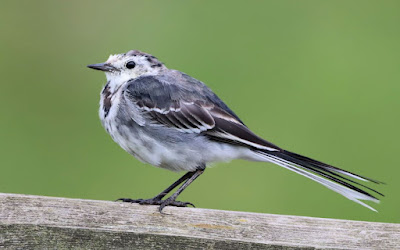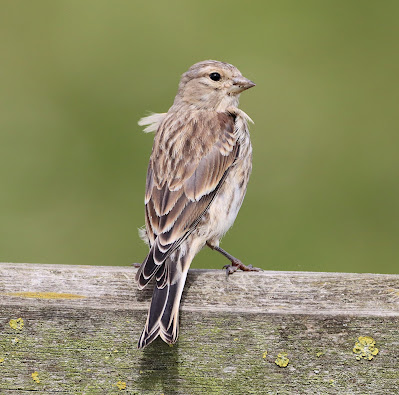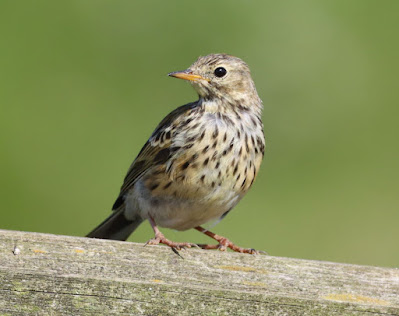Tuesday 16 August. The forecast looked spot on for Wednesday morning so on Tuesday afternoon I drove out to Pilling way to check everything was in place for a ringing session the following morning.
I saw five Common Snipe on the mucky pools and where wagtails usually outnumber waders but not on this occasion. Perhaps the time of day was not ideal for wagtails but I was confident there would be both Meadow Pipits and wagtails the next morning.
Snipe
Pied Wagtail
As I drove off site I spotted the slow, lazy flight of a Marsh Harrier, quartering the ground like a Barn Owl, floating above the grassy fields and reedy ditches on long, V-shaped wings, looking and listening for movement below. The harrier was heading my way, but then veered off and I lost it as it headed north west. Not to worry, there was a good chance the same or another one would be around on Wednesday morning.
On Wednesday morning I met Will at 0630 with a net or two and with the walk-in pipit trap. the one we bait with wriggly meal worms.
Meal worms
Although we caught a few Meadow Pipits, the numbers for a larger total just weren’t around and neither were the wagtails of recent days. We caught 8 birds - 4 Meadow Pipit, 2 Reed Bunting, 1 Reed Warbler, 1 Sedge Warbler.
We rarely capture Meadow Pipits a second time because the species is extremely transitory in both spring and autumn. Therefore it was most unusual that this morning one of the pipits in the walk-in trap bore ring number ACV6545, previously caught and ringed here on 9 August. The lure of free meal worms had overcome any fear or memory that the bird may have had of the walk-in trap just a week ago. It seemed that the pipit is no hurry to migrate south.
Our catch was a poor representation of the numbers of small birds and the species we saw, with highlights of 40 Meadow Pipit, 10 Reed Bunting, 8 Goldfinch, 30 Swallow, 15 Tree Sparrow, 3 Sedge Warbler, 15 Linnet and 8 Goldfinch.
Better was to come when Will’s superior eyes caught sight of a Hobby heading our way. And then we watched as it changed direction upon spotting us and hurried off in the direction of Fluke Hall and Knott End some miles away. It quickly became a speck in the hazy sky to the west.
It was not a surprise to watch a far off Marsh Harrier as it hunted out over the salt marsh but it was too distant to age or sex from some 100 yards away. Was it the same one as Tuesday? Unlikely since mid to late August is peak passage time for this now fairly common raptor of Northern England.
We packed in early as numbers and the clear skies above did little for our catch. But we’ll be back soon so don’t go away good friends because there’s always news, views and photos on Another Bird Blog.
Linking this weekend to Eileen's Saturday.

































































.jpg)












